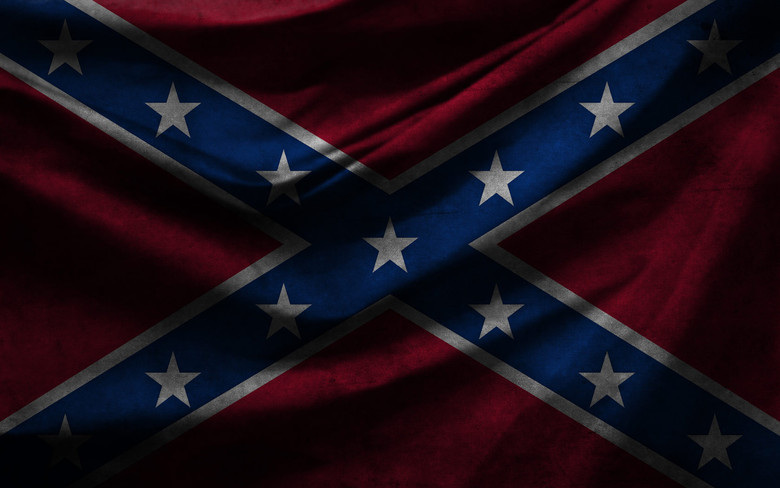
So what if the Confederacy had won the Civil War? What would be the outcome of the United States? As depicted in the movie C.S.A: The Confederate States of America, a mockumentary, the South tries to induce the North to accept the institution of slavery. John Ambrose Fauntroy I introduces a tax that is alleviated by the purchase of slaves, and the works of Samuel A. Cartwright dominate Confederate American medical science. By the start of the 20th century, the CSA becomes the Western hemisphere's superpower — conquering and occupying all of the continental US, Mexico, Central America, the Caribbean, and South America, with a blend of segregation and apartheid. Only the Russian colony of Alaska and Canada are not CSA "client states", with Canada becoming home to refugee abolitionists and escaped black slaves. The Confederates construct a wall along the border between the two countries called the "Cotton Curtain" (referencing the Iron Curtain). Hatred of "Red Canada" dates to the late 19th century, when Frederick Douglass convinces the Canadian Parliament not to repatriate escaped slaves. Canada becomes the popular culture capital of the world with the contributions of African Americans and other exiles (Elvis Presley, after being jailed for a time, flees there), whereas the CSA never evolves beyond heavy-handed government propaganda.
The CSA is hit by the 1929 Economic Crash and extricates itself by reviving the Trans-Atlantic Slave Trade. New African slaves are provided by collaborationist African leaders who enslave on behalf of the CSA members of tribes which they consider "inferior".
During World War II, the CSA is friendly with Nazi Germany, but disagrees with Adolf Hitler's Final Solution — the CSA preferring to exploit non-white races instead of exterminating them. The CSA agrees to remain neutral in any German war. However, the CSA becomes hostile with Japan, seeing its expansionism as a threat to the entire Pacific Region. Confederate leaders assume that the CSA will easily win the war, judging the Japanese as small and weak in physical stature, as well as being non-white. On December 7, 1941 (the date of the actual attack on Pearl Harbor), the CSA strikes two Japanese naval bases and bombs the city of Kyoto as the opening blow in a war against the "Yellow Peril". During the war, the CS military suffers massive losses, and tried to solve its manpower shortages by recruiting a black regiment by promising slaves their freedom if they would fight (which is later revealed to be a lie). This regiment receives the most dangerous missions and suffers high casualties, but earns the respect of white officers. The war is won using the atomic bomb. However, the European war still ends in German defeat, albeit with many more Soviet casualties. After the war, the Summit Nations impose trade sanctions and embargoes on the CSA, forcing the nation into isolation. South Africa becomes the only country maintaining diplomatic relations with the CSA.
During World War II, the CSA is friendly with Nazi Germany, but disagrees with Adolf Hitler's Final Solution — the CSA preferring to exploit non-white races instead of exterminating them. The CSA agrees to remain neutral in any German war. However, the CSA becomes hostile with Japan, seeing its expansionism as a threat to the entire Pacific Region. Confederate leaders assume that the CSA will easily win the war, judging the Japanese as small and weak in physical stature, as well as being non-white. On December 7, 1941 (the date of the actual attack on Pearl Harbor), the CSA strikes two Japanese naval bases and bombs the city of Kyoto as the opening blow in a war against the "Yellow Peril". During the war, the CS military suffers massive losses, and tried to solve its manpower shortages by recruiting a black regiment by promising slaves their freedom if they would fight (which is later revealed to be a lie). This regiment receives the most dangerous missions and suffers high casualties, but earns the respect of white officers. The war is won using the atomic bomb. However, the European war still ends in German defeat, albeit with many more Soviet casualties. After the war, the Summit Nations impose trade sanctions and embargoes on the CSA, forcing the nation into isolation. South Africa becomes the only country maintaining diplomatic relations with the CSA.

During the 1950s, a series of abolitionist attacks cause some Confederate Americans to question the need for slavery. In 1960, when only 29 percent of voters approve of slavery, Roman Catholic Republican John F. Kennedy is elected CSA president over Democrat Richard Nixon. However, foreign policy such as the Newfoundland Missile Crisis distracts him, and he is unable to implement his domestic agenda before being assassinated. The Vietnam War is briefly mentioned as an "expansionist campaign" of the CSA. Slaves rebel throughout the country, including the Watts Riots. Democratic Senator John Ambrose Fauntroy V presents programs returning America to its former Southern Protestant Biblical values — tolerance of adultery and of husbands beating their wives, and intolerance of homosexuals. By the early 1990s, the Confederacy has largely put away such self-doubt.
The documentarians ask Senator (and presidential candidate) Fauntroy V to arrange an interview with some slaves, but it becomes clear that the slaves have been coached. However, they are clandestinely passed a note instructing them to meet a black man named Big Sam (earlier identified as the fugitive leader of a radical splinter group of the "National Association for the Advancement of Chattel People"). Big Sam, in turn, leads them to Horace, a lifelong slave of Fauntroy's, who alleges Fauntroy V is part black, sharing a common slave ancestor. The racial accusations cost Fauntroy V the presidential election; a month later, the senator commits suicide on December 12, 2002. Narration then states DNA tests were negative.

